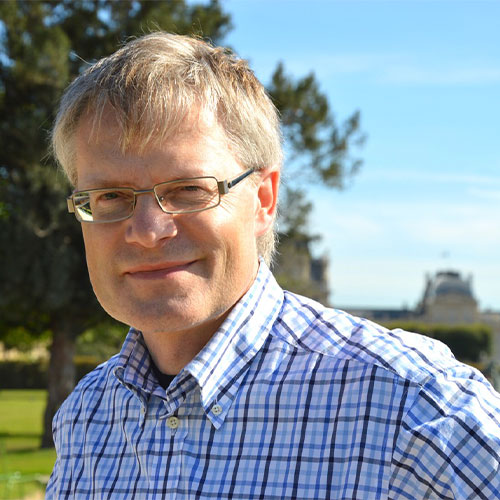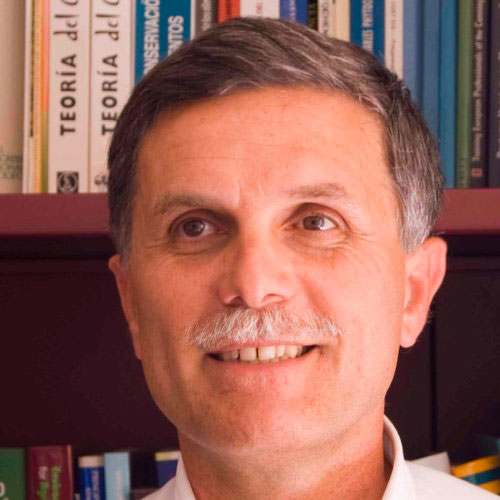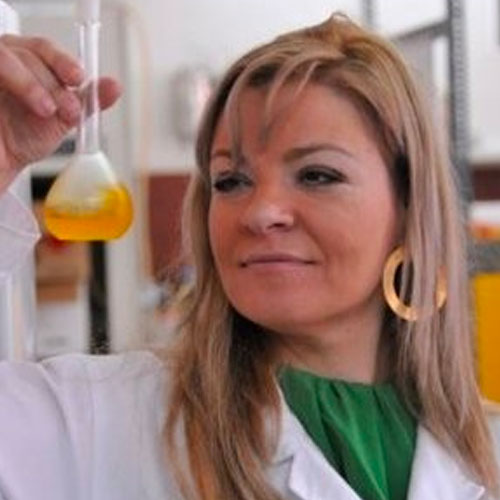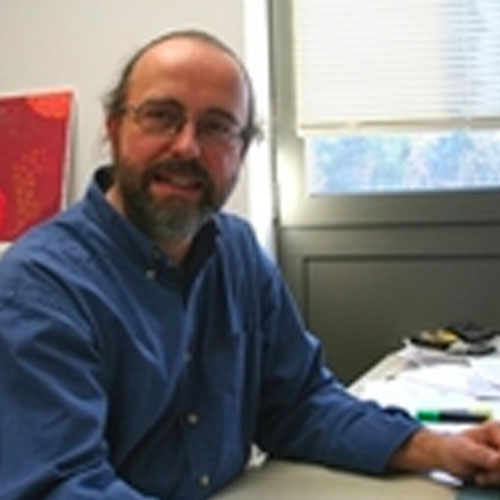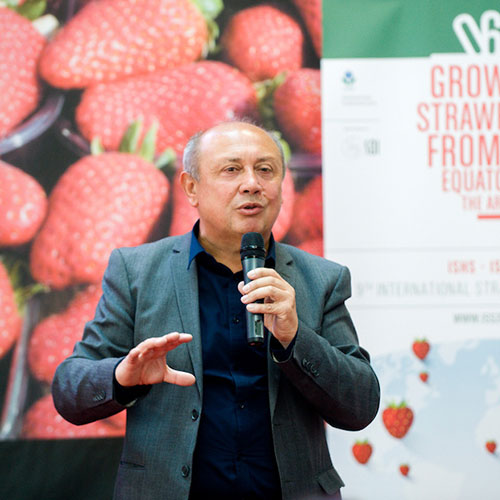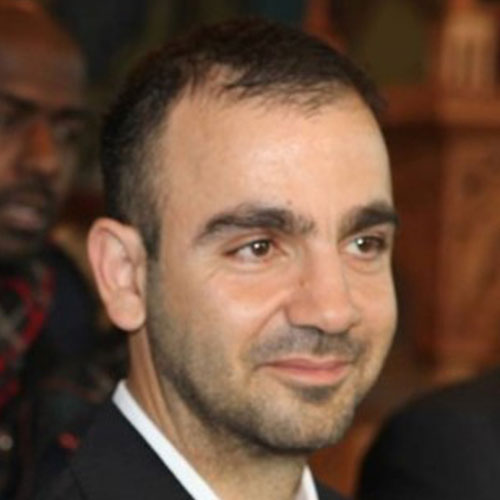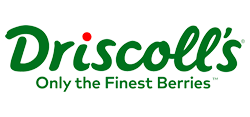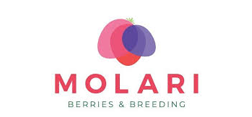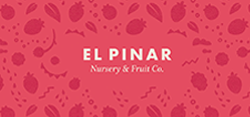
Users Group
George Manganaris
George Manganaris is currently Associate Professor in the Department of Agricultural Sciences, Biotechnology & Food Science at Cyprus University of Technology. He is responsible of the CUT Fruit Sciences & Posharvest Group (www.fruitsciences.eu). His scientific interests include the quality evaluation/phytochemical profile of fleshy fruits with the use of physiological, biochemical and molecular approaches, the elucidation of fruit ripening syndrome with emphasis in the development of physiological disorders and overall the postharvest maintenance of fresh produce. Dr. Manganaris is Associate Editor/Editorial Board member in Postharvest Biology and Technology, Scientia Horticulturae, BMC Plant Biology, Journal of Horticultural Science & Biotechnology. He was appointed by the Hellenic Authority for Higher Education to serve as external evaluator for the accreditation of Academic Institutions and their study programs process of 11 Departments in Greece. He has been also assigned to evaluate competitive research proposals at European (Horizon, EUROSTARS, Innowide) and national level (Italy, France, Belgium, Greece, Serbia, Slovenia, Poland, Chile, Israel, Latvia).
Vasileios Fotopoulos
Vasileios Fotopoulos is Associate Professor in Structural and Functional Plant Biology and head of the CUT Plant Stress Physiology Group established in 2008 (www.plant-stress.weebly.com). His main scientific research focuses on the study of nitro-oxidative signaling cascades involved in the plant’s response to stress factors, while emphasis is being given in the development of chemical, biological and nanomaterial priming technologies towards the amelioration of abiotic stress factors and promotion of plant growth. Relevant research has resulted in the publication of a patent and the provisional filing of a second one. In addition, he is involved in research studying plant secondary metabolism and antioxidant responses in fruit crops during ripening. To date, Dr. Fotopoulos is the author of 99 scientific papers published in peer-reviewed journals (h-index=45; >7200 citations; Source: Google Scholar), as well as 7 book chapters. He currently serves as Editor-in-Chief in Plant Stress, as well as Associate Editor in Plant Molecular Biology, and Plant Physiology and Biochemistry. He has also been assigned to evaluate competitive research proposals from different countries (France, Belgium, Poland, Australia, UK, Chile, Latvia, Greece, Italy, Serbia, Czech Republic, Portugal, Israel, Qatar, Austria, Cyprus, Denmark), EU proposals (EUROSTARS), while he is an active Review Panel Member for COST Actions (EU) in the field of ‘Natural Sciences’. Finally, he has acted as examiner of MSc theses/PhD dissertations from Italy, Greece, Spain, India, South Africa and The Netherlands.
Fransisco Tomas-Barberan
His scientific career has addressed to the study of the role of polyphenols from plant-derived foods in their quality, and health-promoting properties in humans. On a first period regarding polyphenol analysis as botanical and geographical origin biomarkers both in honey and in processed plant-origin foods, to continue later with their role in organoleptic properties, to end with their role in human health. During the last decade of the last century we discovered that UV irradiation could be used to enhance postharvest the content of resveratrol in grapes, and this process as optimized, patented and licensed to the company Actafarma, and the patent gave CSIC more than 1Million € in royalties until 2018. Since 2000, the group that I was leading started studies on the effects of dietary polyphenols in human health, with an especial interest in their antioxidant activity. In 2000 we (Gil M.I. & Tomas-Barberan, F.A.) demonstrated the high antioxidant activity of pomegranates, and particularly the processed juices that contained high amounts of ellagitannins (Gil et al., 2000, J. Agric. Food Chem.), and that the antioxidant activity evaluated in vitro was superior to those of red wine and green tea. This research article has been cited over 2000 times. We also studied how processing affects the polyphenol content and how this treatment enhanced the in vitro antioxidant activity which was related to the high content in ellagitannins. In further studies we evaluated the bioavailability, metabolism, and tissue distribution of these polyphenols in animal models (rat, mouse and pig) and humans, demonstrating the relevance of the gut microbiota metabolites, as they are much more bioavailable than the original phenolics, they persist long time in the body, and show significant biological effects, despite decreasing the antioxidant activity evaluated in vitro. In this sense, the focus of our research has been the identification of the polyphenol metabolites that are finally absorbed, with a particular interest in those produced by the gut microbiota, the identification of polyphenol intake biomarkers, and the determination of the mechanisms for the biological activity of these metabolites, using models that are compatible with the conditions observed in vivo (metabolite concentration in the tissues, kind of metabolite, and type of human tissue). We have also completed human intervention trials with the objective of the evaluation of the effects of the dietary polyphenols in cardiovascular function, intestinal and systemic inflammation, metabolic syndrome, and colorectal cancer.
Magda Krokida
Professor of the School of Chemical Engineering of NTUA. She is a member of the Laboratory of Process Analysis and Design since 2002. She is working in the area of Food Engineering, with more than 25 years of experience. She has intensively worked in the design and development of functional foods, in the design and optimization of physical processes, such as drying methods, extraction methods, novel encapsulation methods, etc., the determination of thermophysical properties of foods, in database development, as well as in the evaluation of the economic and environmental impact of several products and processes. Prof. Krokida has a considerable publishing activity, including two Greek books, two international books and eleven chapters in international books and more than 140 articles in international “peer-reviewed” journals (more than 3160 citations). She is also editor in one book. She has participated, both as a scientific advisor and as a researcher, in more than 40 research projects, funded by the European Commission, the general Secretariat of Research and Technology and various food industries. She is a reviewer in 10 international journals, member of the editorial board of 2 international journals and has participated as a member of the organizing and scientific committee in several scientific conferences. She is representative of Food for Life Platform in Greece, representative of Greece at the International Scientific Committee of Drying (EFCE Working Party on Drying), President of the Scientific Committee of the Hellenic Food Industries Association (SEVT) and ambassador of Global Harmonization Initiative (GHI) in Greece.
Salma Balazadeh
Salma Balazadeh studied biology and obtained her MSc degree in Cell and Molecular Biology at the University of Tehran, Iran. In 2008, she completed her PhD in Molecular Plant Biology at the Max Planck Institute of Molecular Plant Physiology (MPI-MP) and the University of Potsdam, Germany. Afterward, she continued as a Postdoctoral Research Assistant, and from 2010 until 2016, she headed the Cooperative Research Group “Gene Regulatory Networks” at the MPI-MP. In 2016, following an international peer review, she became an Independent Research Group Leader at the MPI of Molecular Plant Physiology and established her group on plant ‘Stress Control Networks’. Currently she is an Associate Professor at Leiden University in the Netherlands. Her research focuses on understanding the signaling mechanisms in plants that trigger responses to environmental stresses and unraveling the cellular processes through which plants counteract such stresses. Salma Balazadeh has published 69 peer-reviewed articles and two book chapters. These include papers in Nature Plants, Nature Communications, Molecular Plant, Autophagy, Plant Cell, New Phytologists, Current Opinion in Plant Biology, EMBO Reports, Plant Journal, Plant Physiology, ACS Synthetic Biology, and Journal of Experimental Botany. Salma Balazadeh's scientific mission is to unravel the molecular mechanisms enabling plants to withstand environmental stresses, particularly heat and drought. Her expertise in plant genomics, along with a core strength in the functional analysis of plant stress response mechanisms, has led to the identification of several key players in the control of plant growth under stress conditions and the discovery of important elements and regulatory mechanisms of stress memory in plants, a newly emerging field in plant science.
Bernd Mueller-Roeber
His current research interest are plant transcription factors and gene regulatory networks, plant aging and senescence, mechanisms of abiotic stress tolerance, priming in model and crop plants, plant biotechnology, synthetic biology in plants and microbial organisms (S. cerevisiae). Publications: more than 200; more than 19.500 citations; h-index: 76; i-index: 185. Besides others, he is/was Member of the DFG Senate Commission on Genetic Research (2010-2017), Deputy Head of Germany´s BioEconomyCouncil (BioÖkonomieRat; from 2009-2011) where he also headed the Expert Group ´Plant Innovation´, Member of the Scientific Advisory Board of the European Joint Programming Initiative ´Agriculture, Food Security and Climate Change´ (2009-2011), Member of acatech – German Academy of Science and Engineering (since 2006), Member of Berlin-Brandenburg Academy of Sciences, Berlin, Germany (since 2003). From 2014 - 2018 he was President of VBIO - German Life Sciences Association, representing more than 30.000 individual members and members from different life science organisations, companies, and other institutions. Since 2015 he is member of the Executive Board of the Center of Plant Systems Biology and Biotechnology – CPSBB, Plovdiv, Bulgaria (www.cpsbb.eu). Prof. Dr. Mueller-Roeber is editorial board member of ´Cell Research (Nature)´ (since 2004); ´Plant Signaling & Behavior´ (since 2006); ´Molecular Plant´ (since 2007); PeerJ (since 2014); Cell Discoveries (since 2015); Frontiers in Plant Science (since 2016); Plants (since 2018). Prof. Mueller-Roeber coordinates and is involved in many national and international projects, see examples in the following. Since 2012 he is member of the Steering Committee of the DFG-funded Cooperative Research Centre 973 “Priming and Memory of Organismic Responses to Stress”, where he also heads a subproject. The project aims to address the importance of abiotic stresses (e.g. heat) on plant fitness, growth and development. It also aims at investigating the impact of the stress on the morphology and physiology of the plant shoot apical meristem (SAM) and investigates the molecular mechanisms underlying the phenomenon of SAM viability during the stress period. From 2015-2018, he coordinated the H2020 MSCA ITN ´CropStrengthen - Genetic and molecular priming approaches to increase crop strength and stress tolerance´ (GA 642901;): The project, run by the UP and industrial partner companies, offered training in systems biology for five doctoral students, with a focus on developing novel methods for increasing the resistance of crops to abiotic stresses using non-GMO technologies and by investigating the molecular basis of molecular priming to induce stress-protective mechanisms. (www.uni-potsdam.de/cropstrengthen).
Maarten Hertog
Maarten Hertog studied biology at the University of Utrecht (NL) after which he gained international working experience at three of the key research groups in the area of postharvest modelling. He started his career in 1991 at the former Agrotechnological Research Institute ATO-DLO, Wageningen (NL). In 1998 he subsequently took up a job offer to work at the former Food Technology Research Centre at Massey University, Palmerston North (NZ). In 2002 he took up his current job at the MeBioS postharvest group at KU Leuven (BE). He obtained his PhD in the applied biological sciences with KU Leuven in 2004. Since 2009 he has been appointed research manager in computational plant biology with the MeBioS group of KU Leuven. His research is on applied systems biology, postharvest physiology and kinetic modelling. In his research, he is trying to bridge the gap between fundamental plant sciences and applied postharvest research using kinetic modelling approaches. Over the years, he has been invited as a speaker at various postharvest conferences including a Gordon conference, and he has been involved in the organisation of the series of Model-IT conferences on modelling in the agri-food chain. He is editor of five books on food modelling and has published over 150 articles in peer reviewed ISI journals (H-index: 31). He is author of OptiPa; a MatLab user interface to simulate, calibrate and validate ODE based simulation models. As of 2006, he is member of the editorial board of Postharvest Biology and Technology.
Bruno Mezzetti
Bruno Mezzetti (male), Full Professor since 2006 and Director of Department 2009-2015, now chair of the PhD school in Agriculture, Food and Environmental sciences. He has been author in 153 international scientific publications related to different aspects of plant breeding and biotechnology, fruit plant cultivation systems, fruit quality and health benefits for the consumer. Standard field breeding programs are combined with laboratory studies for the compositional characterization of the fruit bioactive compounds and to biotechnology approach to study and validate the function of genes related to important traits. Prof. Mezzetti is R&D project evaluator and editor in two SCI journals. He has been Coordinating 2 EU COST Actions COST (COST836, COST863) and the FP7 EUBerry Project (www.euberry.univpm.it/) and several national Projects (MIUR, MIPAF, CNR). Currently, he is coordinating the – iPLanta (http://www.cost.eu/COST_Actions/ca/CA15223) network and partner of the Horizon 2020 ‘Goodberry’ project. Prof. Mezzetti is author of a total of 141 publications in ISI journals (IF:30) and several book chapters, topic review manuscripts and extension non-indexed publications. He has Chaired 3 ISHS symposiums and will chair the ISS2020 Strawberry symposium.
Evangelos Tsormpatsidis
Dr Evangelos Tsormpatsidis, Plant and Soft Fruit Physiologist, is Head of R&D Department at Berryplasma World LLC (Varda Ilias, Greece) responsible for applied research on soft crops. His research activity so far has been focusing on the physiology of small fruit crops (strawberry, raspberries, blackberries and blueberries). I am a graduate of Aristotle University of Thessaloniki with a Msc and PhD from the University of Reading, UK. During my academic career I lectured in the undergraduate and postgraduate programs of the University of Reading related to small fruit crops. During my professional career, I was responsible for the Research & Development Department of the University of Reading, Soft Fruit Technology Group conducting applied research on soft fruit crops.
Neerakkal Sujeeth
Dr. Sujeeth Neerakkal heads the Plant Biology Department in BioAtlantis Ltd., Ireland. Sujeeth completed his PhD in Plant Molecular Biology from University of Groningen in 2010, specialising in elicitor-plant stress responses. He subsequently undertook a postdoctoral research fellowship at the Faculty of Biology, University of Plovdiv, Bulgaria, focused on characterizing genes that modulate fungal toxin and paraquat induced oxidative stress in Arabidopsis. This included positional cloning and isolation of a novel gene from an atr7 mutant in Arabidopsis. The study found that a single nucleotide mutation in this gene confers enhanced tolerance to oxidative stress in plants. The significant outcome from this research was the approval of two EU research programmes to further explore the atr7 gene networking (PLANTSURVIVOR, EU-FP7 Grant Agreement n° 329816 and CropStrengthen, H2020 Grant Agreement n°642901). Sujeeth joined BioAtlantis Ltd. in 2012, an Irish-based biotechnology company specialising in natural bio-based innovations for reducing stresses at various stages of crop development. Sujeeth oversees all the plant research activities at the company, including product development, elucidating the molecular modes of action of biostimulants and supervision of a team of plant scientist and PhD candidates. He played a key role in coordinating a number of EU-FP7 and Horizon 2020 projects for BioAtlantis (BIOFECTOR, COFREE, CropStrengthen & NASPA). He is currently managing three new EU projects (RESIST, EpiSeedLink and CropPrime) for BioAtlantis. Sujeeth currently focuses on elucidating molecular priming process in crops using biostimulants and in developing technologies to induce tolerance to abiotic stresses associated with climate change.
Berryplasma World is an innovative family company located in Varda Ilias, one of the most dynamically developing regions in Greece for soft fruit production. It is located in the Northern part of Ilia prefecture, a place with great historical value thanks to its proximity to the Olympic Land. Berryplasma aims are: (1) Invest on research & development through applied research, (2) Invest on training people through developing high quality skills, (3) Producing premium quality plants with specific cropping dynamic, (4) Producing premium quality of berries supporting biodiversity & respecting the environment
Biolchim is a leader company in the production and marketing of special fertilizers and biostimulants, products with high added-value that combine agronomic efficacy and environmental sustainability. Thanks to the experience acquired in almost 50 years of activity, the ownership of manufacturing technologies of strategic raw materials and a solid platform of knowledge and innovation, Biolchim offers its customers a complete portfolio of safe and effective products that allow to maximize the yield of any crop, anywhere in the world.
BioAtlantis was established in 2004 and entered the crop biostimulant market in 2007 with stress mitigation as a central strategy. Stress is now recognised worldwide as affecting most life forms. It can be split into two main categories, abiotic and biological stress. Extensive research into both crops and animals has provided BioAtlantis with the knowledge base to develop compounds that can be used to mitigate or prevent abiotic and biotic stress issues occurring, across different life forms and species. The company has grown rapidly since inception and has developed an extremely strong scientific base with numerous peer reviewed papers published in conjunction with academic partners. As testament to this growth, BioAtlantis commissioned a new production facility in 2019 at its base in County Kerry, Ireland, facing the Atlantic Ocean, on the western extremity of Europe. This is the largest seaweed extraction facility in Britain or Ireland and can concurrently produce amino and humic acids. BioAtlantis offers a portfolio of proven solutions for the agricultural crop sector. The vision of BioAtlantis is to provide natural compounds, extracted from renewable marine and terrestrial resources, to reduce stress in plants, animals and humans by strengthening natural defence systems and by enhancing the innate immunity of animals and humans.
Driscoll’s has been working with berries for over 100 years. Since the foundation of our company, our Driscoll’s family has expanded and is still growing today. Together we inspire each other to perform at our best throughout the whole berry chain. Through efficient planning and coordination, Driscoll’s aims to keep the berry chain as efficient as possible. This is how we guarantee a beautiful, fresh, and delicious, quality product. We at Driscoll’s all share the same values of passion, humility and trustworthiness. These values guide us on our way to bringing delight to our berry consumers.
Timac Agro is a subsidiary of the French group Roullier. The Roullier Group is a global power in the Agri-food sector with more than 96 production units worldwide. The aim of the Roullier Group and Timac Agro is to continuously create innovative solutions with the main aim to meet the needs of tomorrow's Agriculture. For this reason, the Roullier Group has established the world's largest specialist nutrition research center, called the CMI (Center Mondial de l'innovation Roullier), which hosts more than 100 scientists of different specialties from 15 different countries and its sole purpose is the creation of new technologies for new generation fertilizers. As a company we follow the Roullier Group's philosophy, which is based on 4 main pillars: - High quality of services and products - Creativity - Professionalism - Passion for the Agrifood sector. The goal of Timac Agro is to implement innovative and specialized solutions, which serve the Greek farmer as a daily ally. We offer customized solutions for every crop and for every stage of development. Our products aim not only to maximize the production, but also to optimize the quality, ensuring a greater and more sustainable income for all farmers.
Yara grows knowledge to responsibly feed the world and protect the planet. Supporting our vision of a world without hunger and a planet respected, we pursue a strategy of sustainable value growth, promoting climate-friendly crop nutrition and zero-emission energy solutions. Yara’s ambition is focused on growing a nature positive food future that creates value for our customers, shareholders and society at large and delivers a more sustainable food value chain. To achieve our ambition, we have taken the lead in developing digital farming tools for precision farming, and work closely with partners throughout the food value chain to improve the efficiency and sustainability of food production. Through our focus on clean ammonia production, we aim to enable the hydrogen economy, driving a green transition of shipping, fertilizer production and other energy intensive industries. Founded in 1905 to solve the emerging famine in Europe, Yara has established a unique position as the industry’s only global crop nutrition company. We operate an integrated business model with around 17,000 employees and operations in over 60 countries, with a proven track record of strong returns. In 2021, Yara reported revenues of USD 16.6.
Study and production, for us at Sant'Orsola, always go hand in hand. We are specialized technicians, with a great passion for our work. Like the one that accompanies our producers, every day. We owe this recipe of technique and passion to the study and continuous innovation of our Research & Development department, which works in the countryside. This is where the knowledge and care that are transferred to producers are nourished, to allow them to obtain the best productions, in compliance with the techniques, cultivations and regulations that govern our sector. Our commitment is always the same: to continually improve the quality of our small fruits, of the work in the countryside, of the health of the crops, of the workers and of the territory. Only in this way can we deliver excellent quality products to you, who choose us. 90% of Sant'Orsola production is protected by covers, which help us defend our plants from rain and humidity. In this way, we protect them from the risk of contracting diseases that should be treated with phytosanitary products. In addition, any treatments on our plants permitted by the regulations are contained under the covers, greatly limiting their drift. All the cover sheets, at the end of their excellent work, are disposed of and recycled in accordance with the law. We strongly believe in innovation, in its being full of novelty and improvement. In all these years, we have developed agronomic techniques that have allowed us to redevelop agricultural areas , and recover lands that would have been abandoned. All this respecting the crops, the quality of the product, the work and the workers. Our small fruit productions are regulated by the “Disciplinare di Lotta Integrata Sant'Orsola”, compliant with the national guidelines of “Produzione Integrata”, which guarantees a lower environmental impact and a highly reduced use of phytosanitary treatments (70% lower than the limits imposed by law). In the blueberry and raspberry fields of our producers in Sicily, Calabria and Marche, we have also managed to reach an important milestone: the Zero Residue certification. The Sant'Orsola production system is certified in compliance with international quality standards, with the GLOBAL GAP certifications, for good agricultural practices, and GRASP, for worker health and safety. Furthermore, since 2020 our environmental management system has been certified in compliance with the ISO 14001 regulation.
Raspberry breeding is the scientific art of developing new raspberry varieties with superior qualities. At Advanced Berry Breeding (ABB), we tap into a wide genetic pool to select plants that exhibit traits that matter most to you and cross them, aiming to produce new generations of raspberry varieties that surpass their predecessors in quality. At the heart of our breeding program is an unwavering commitment to create diverse and profitable breeding solutions that are accessible to raspberry growers everywhere. The journey begins with classic plant breeding, embracing the richness of natural genetics. We strive to generate raspberries that not only captivate the taste buds but also meet the demands of sustainable and profitable cultivation. Through our international network, we stay ahead of the curve in market insights. We anticipate and integrate the latest developments and trends into our breeding process, enabling growers worldwide to cultivate varieties that meet retail requirements and consumer preferences. We are empowering growers is at the heart of our mission. Gain insights into the science, research, and practical expertise that inform our breeding efforts. Our advice extends beyond the choice of variety, encompassing crucial growing techniques for successful and profitable cultivation.
Edward Vinson Ltd. (EVL) has been growing fruit for over 150 years in the South East of England. EVL is unique within the UK for focussing on premium varieties, plants and berries. Our breeding programme commenced in 1986 to breed improved Everbearer strawberries for UK growers. The programme has now evolved into three strawberry breeding programmes to cover the major commercial strawberry types, with selection operating in the UK and Spain. Important commercial releases include Everest, Evita, Evie2, Sweet Eve, Eves Delight 2 and Eves Joy, and these varieties are grown in number of regions across the globe.The success of the breeding programme lead to the development of a propagation business, Edward Vinson Plants Ltd. (EVP), to manage the demand for the varieties and high quality plants. The propagation business now produces 25 Million tray plants across the South of England and Bulgaria. The berry growing operations in and around Faversham, Kent, grow plants from EVP, of EVL breeding, to supply strawberries to leading retailers in the UK. Only berries of EVL bred varieties are grown, under tunnels, and picked for packing in EVL’s new packhouse. Fruit is dispatched from the packhouse to a range of UK retailers in collaboration with our marketing desk partners.
BerryWorld have travelled the world for over 25 years. We’ve tasted over two million berries to bring you the berry best. Working with our award-winning breeding experts, BerryWorld Plus, we now have access to out of this world raspberries to go into our packs and on to your plates. We’ve selected the most refreshing raspberries to suit even the most discerning taste-buds, so much so that some have been crowned with the International Taste Institute. We focus on developing the best varieties of raspberries and the best growing methods to maintain a sustainable berry production for generations to come. We pride ourselves on the long-standing relationships we hold with our berry farmers from all corners of the world, all of whom have been Global Gap, BRC, and SEDEX certified, showing that berries have been grown ethically and sustainably with care for the environment.
Hortifrut is a leading global business platform for the production and commercialization of the tastiest and healthiest berries. Set up in Chile more than 40 years ago, we are now the largest blueberry producer and marketer at a global level, and the second largest in the whole berry category. With presence in four continents, our business model is based on strategic alliances, connecting producers with customers all around the world, supplying clients with the right fruit, every day of the year. Our culture is centred in our people, the communities they live, and the environment.
Royal's history dates back to 1962, the year in which a visionary Valencian farmer founded a family business under the premise of offering quality and flavourful products to the population. Mr. José Gandía settled in the south of Spain, specifically in Seville, and began a professional career that soon began to achieve important milestones. At the beginning of the new century, in 2007 Royal began to produce in the neighbouring country . It was with the cultivation of blueberries that the company expanded to the territory of Kenitra, in Morocco. In the African country, blueberry and raspberry plantations were to be expanded not only in Kenitra, but also in Agadir. Continuing into the second decade of the 2000s, Royal managed to continue developing new varieties that aroused the interest and attention of the market, i.e. the ‘Sequoia’ raspberry. In recent years, the company has also managed to put important and modern packaging facilities into operation in Seville. It is also worth highlighting the expansion of blueberry cultivation in southern Portugal. A company that never stops striving to advance and innovate from the experience of traditional agriculture. Offering new proposals to the population to conquer through flavour is the objective they work towards every day. Recognition of this effort and work over the years is, for example, the distinction of “Flavor of the Year” in the countries of Spain and France obtained in 2023 with the company's star variety in blueberries: Bluaroma®. Royal is a company in continuous progress driven by the motto that represents them: Farming for flavour.
SanLucar is a global company that is dedicated to bringing people natural joy of life and health in a way it can be proud of. Offering a variety of more than 100 delicious fruits and vegetables from more than 35 countries, SanLucar is the brand with the broadest top-quality assortment in the German, Austrian and Dutch retail market. The portfolio also includes smoothies, fresh cut, as well as flowers and plants and now also ice cream. Currently, SanLucar is expanding into Canada, Italy, England, Scandinavia, Poland, Ecuador, the Middle East and North Africa. SanLucar, founded in 1993 by Stephan Rötzer, is headquartered in Valencia (Spain) with over 4,000 employees in Germany, Austria, Benelux, Italy, Spain, Ecuador, Dubai, South Africa, Morocco and Tunisia, both in its office branches and on its own farms. The secret of the company’s success lies not only in combining the traditional wisdom of its master growers with innovation and passion for healthy food, but also in building long-term relationships. Thereby, the company has the entire value chain in mind: from the selection of varieties to support at the point of sale. The philosophy "Taste in harmony with people and nature" is the foundation for all actions SanLucar undertakes. With its corporate responsibility program, DREAMS, SanLucar focuses on its employees and local needs of the communities surrounding its sites. The focus is on promoting education, nutrition, sports, and environmental protection through plastic reduction and resource-conserving cultivation. As an active member of the Spanish Global Compact network since 2018, SanLucar is strongly committed to achieving United Nations Sustainable Development Goals (SDGs).
Hortitool Consulting born from the passion of its founder Jorge Duarte, for berry crops after started working with strawberries in his early working days. Our focus of technical assistance is 5 main crops – strawberry, blueberry, raspberry, blackberry and red currant. Today we are currently present in 5 countries. With a technical team with over 20 years of experience in the agricultural sector, since 2004 we are involved in the production of Berries, were in 2009 we reach the international production market, were we keep until today, updating knowledge about this crops and their respective commercialization. With an increasingly collaboration within a network of farms and experts all over the world, the company maintains regular contacts with international consultants and professional growers from countries such as Spain, Italy, Holland, Belgium, Germany, Australia, and Georgia.
The family company FLORIVA has been producing berry seedlings for three generations in Ivanjica, which is the largest region for raspberry production in the world. Traditionally, for more than 70 years, about 90% of the population of our municipality has been producing the best quality raspberry fruits in the world on the slopes of Mount Golija, which is an official Biosphere Reserve and Nature Park. The company produces seedlings from our own mother plants of top quality, which are under the constant professional supervision of authorized institutions that guarantee variety and high quality. If required by customers, we also import the highest quality seedlings from renowned producers of raspberry seedlings and our partners from all over the world. The main goals of FLORIVA BEL are the production of certified, virus-free, ELITE, container seedlings of the world’s best raspberry varieties and to transfer raspberry production technology, either in in an open field, or in a covered and in a closed area.
Plastika Kritis is one of the leading European producers of masterbatches and agricultural films. It has a strong international orientation with affiliate companies in France, Romania, Poland, Russia, Turkey and China and exports to 90 countries around the world. It has been listed in the Athens Stock Exchange since 1999. Plastika Kritis, has developed a novel solution by use of nanotechnology. The innovative 8-layer EVO AC films provide anti-drip and anti-mist effects for many years, offering significant value to soft fruits growers - despite the use of ropes to secure the plastic that do not allow a totally droplet free environment. Furthermore, Plastika Kritis has developed Cooling films that substantially reduce the day-time temperature inside the tunnel. Regarding soil grown soft fruits, the principal challenge of most growers is how to disinfect the soil effectively and in a sustainable way. Plastika Kritis has worked extensively with strawberry growers in Greece and have advanced the technique of solarization using TIF (totally impermeable film) that lead to a perfect disinfection of the soil without any chemicals.
Molari Berries & Breeding daily activity is studying the market, the trends and to develop solutions that the berry industry can implement in its mechanisms to continue its growth. Molari Berries and Breeding are working on different concepts that we believe will give better instruments to the whole players involved in the berry industry: Easy Concept, Gil Program, Naike blueberry club, Blackberry year-round.
El Pinar is a family-run company that produces plants and fruit in our fields in Spain, Portugal and Romania. From there, we distribute plants to growers around the world, while also providing excellent fruit to clients throughout Europe. Over the last 20 years, the company has become a leading figure in searching for and developing new varieties. Our experience in the production of berry plants dates back to the end of the 70s when, together with a group of farmers, our founder Javier Esteban, began to grow fruit plants in the sandy soils of Carracillo, an area in Segovia. Since then, we have collaborated with American and breeding programs, with the permanent goal of providing our clients with the very best varieties. In the high altitude nurseries in the regions of Ávila and Segovia and our new nursery in Romania, we produce potted, bare root and frigo plants in the best climates and soils. We adapt to the specific needs of each client. Additionally, our technical department advises our growers so they can obtain the best results from each variety. Nowadays, El Pinar is the leading national producer of summer berries, we grow strawberries, raspberries, blackberries, blackcurrants and blueberries that we sell to the leading retailers in Spain and all over Europe. We are sure that our consumers will value the results of our work, and our goal is to give them safe and healthy products that meet their expectations. We take in account these needs to choose the varieties, our production options, specially the ecologic one, and all related to formats and packaging more suitable for their way of consumption.


